Reply To:
Name - Reply Comment
Last Updated : 2024-04-25 12:36:00

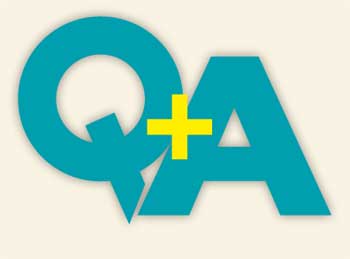 Q Could you enlighten us on where exactly the constitution reform process of Sri Lanka stands at the moment?
Q Could you enlighten us on where exactly the constitution reform process of Sri Lanka stands at the moment?Formally, we are at the middle of the second stage as the six Sub-Committees of the Constitutional Assembly have submitted their reports. Three main stages are anticipated in the Constitution-making process before proposals go to the Cabinet to become a Constitutional Bill to be presented to Parliament. There is no agreed time frame.
First stage was from January to May 2016 after the Cabinet appointed the Public Representation Committee (PRC) which went around the districts and gathered people’s opinions orally and in writing. Opinions were invited on 20 topics from anyone. That was commendable.
Then started the second stage or the Sub-Committee process based on the Framework Resolution approved by Parliament for the Constitutional Assembly on 9 March 2016.
However, the Steering Committee is yet to submit its report to complete this stage. This is a difficult task as there are overlapping proposals and in fact some Sub-Committees have gone beyond their premises to very controversial terrain without necessary caution.
It is also necessary, in my view, to allow some time for the citizens to express their views on the Sub-Committee reports before the Steering Committee drafts/submits its report. This will be a Draft Constitutional Proposal.
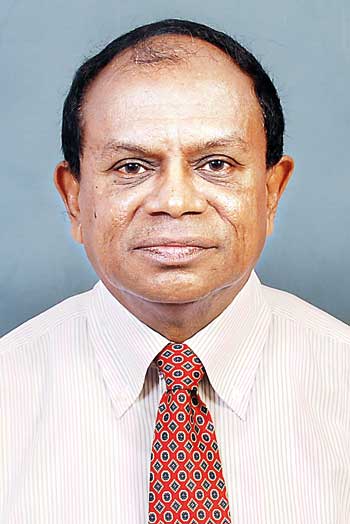 constitution since we received independence. What does this say about our country?
constitution since we received independence. What does this say about our country?It says that our country has been through a ‘constitutional disequilibrium.’ -at times, through a ‘dangerous disequilibrium.’
The situation after the 18th Amendment was the example for the latter. That is why we need a New Constitution. We were at the edge of losing democracy. This is also one reason why the constitution makers should be extremely careful and should take necessary time without rushing. On the other hand, unnecessary delays also might make a disaster like in August 2000.
Disequilibrium means the absence of harmony. Therefore, there should be harmony to have constitutional equilibrium. On the one hand, harmony between people’s expectations/aspirations and the constitution. People expect security and protection personally, and collectively as a nation. People also expect justice and fairness. Therefore, those should be delivered by a New Constitution.
On the other hand, it also means harmony among various institutions within the constitutional system. The Legislature, Executive and Judiciary are the three main institutions at the apex level. There should be harmony among them, while absolutely respecting institutional independence of the judiciary. There are also the Centre (national government) and the Provincial Councils at the horizontal axis. There should be harmony between them as well.
Since constitutional affairs are governed by politics (and adversarial ones) it is too ideal to expect perfect harmony. Equilibrium here therefore means reasonable harmony within an acceptable range. Politics is often defined by power. But it should be for justice. If we move for the latter objective of justice, it wouldn’t be difficult to achieve ‘constitutional equilibrium’ both in theory and practice.
I think all democratic election outcomes should be respected, except those that are completely rigged or forced. That is the way to correct any deviations or flip sides. Therefore, the Hobbesian idea of governance should not prevail. Just because we dislike an outcome, the popular verdict should not be denounced. It is very subjective. In 1934, Hitler forced the referendum outcome through armed groups.
Thereafter, referendums were rigged. No such a thing at Brexit or American Presidential elections. The discrepancy between the ‘popular majority’ and the electoral college majority in America was because of the electoral system. Electoral systems are not perfect. Those should be improved when defects are detected. This applies more to Sri Lanka in the present constitutional reform.
There are ups and downs in any democratic system. The lesson of Brexit or the US polls is about how to avoid extremes. If you go to one extreme, the other side might go to the other extreme. The best path is the Middle Path. Even in the present constitutional making process that should be the approach.
As far as I am aware, there are no final proposals regarding the Provincial Governor, land or police powers. However, the following are my present views on those matters.
The Governor should represent the President. Although we are moving for a parliamentary system, the President can be elected nationally like in Ireland. The President’s executive tasks should be 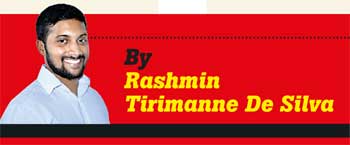 limited to ‘national security’ and ‘national reconciliation.’
limited to ‘national security’ and ‘national reconciliation.’
Other tasks should be ceremonial. The Governor’s tasks also should be related to ‘national security’ and ‘national reconciliation.’ All others should be ceremonial. This means the reduction of all other powers from the present provincial Governor.
We must understand that the people in the North have a great sense of freedom. This should be respected and accommodated as much as possible. They should be free from external control. But they should abide by the Constitution. With freedom also comes responsibility.
My conception to resolve the issues in the North is ‘cooperative devolution.’ We should reduce and rename the ‘concurrent list’ as ‘cooperative list.’ This means the tasks that the Centre and the Provincial Councils should undertake cooperatively.
In my view, land and police powers could be cooperative tasks. Balanced regional development is another way of resolving the issues in the North as well as in other rural provinces (i.e. North Central, East, Uva etc.).
Balanced regional development also should be a cooperative task. Many others could be given to the provinces. The Centre should not hesitate to give. As much as they give, they can perform their tasks better nationally. This is better for the country, its development and for the people. The devolution is like division of labour. It improves efficiency and productivity.
I don’t think the Geneva Resolution has much bearing on the constitution making process. We have been striving for a New Constitution since 1994. I have not seen any Sub-Committee making any reference to that Resolution. Instead, the Sub-Committee on Fundamental Rights and Freedoms has taken inspirations from several new constitutions in the world (South Africa, East Timor, Nepal, Ecuador, Bolivia and Kenya).
It is important that the New Constitution anchors its philosophy on democracy and human rights. A great new effort is placed on recognizing and implementing Economic, Social and Cultural Rights. This effort goes beyond the present fundamental rights chapter of the 1978 Constitution. There is no recognition of these rights in the present constitution. This is beneficial for the ordinary masses.
This is what we should emphasize when we go for the referendum. Cultural rights also mean minority rights and group rights. Apart from devolution, a new vision for ‘fundamental human rights and freedoms’ should be geared for national reconciliation. Our conception of human rights is also with human responsibilities.
I think I have already underlined some. To sum up, key structural areas are: (1) Devolution or centre-periphery relations also giving emphasis on local government. (2) Reforming the electoral system to make it more democratic and people friendly. Old parliamentary seat system (under FPP) within an overall proportional representation (PR) is possible. (3) Changing the executive presidential system to a parliamentary system. However, keeping a useful role for an elected President is desirable.
Then there should be a clear vision for a plural democratic system, recognizing the multicultural nature of the society in an operational Preamble. It is interesting note that Bolivia calls it a ‘plurinational state’ considering various ‘nations’ in the country. I am not at all advocating it. The state can be unitary with [extensive] devolution. But in a constitution, adjectives [extensive] are not usually used. We have already discussed fundamental rights and freedoms. I wish, if it is called ‘fundamental human rights’ with an emphasis on ‘human rights’ aspect. It is educational and comes closer to the universal norms.
Language rights or issues should be clearly fixed. I wish all three languages (Sinhalese, Tamil and English) be official languages. There should be a ‘language revolution’ in Sri Lanka in strengthening trilingual competence of all citizens, particularly the youth. This is possible under the present-day technology. There should be a special place always for Sinhala and Tamil as national (indigenous) languages.
Independence of the Judiciary should be strengthened and ensured. The Present Chapter on Public Service is appallingly poor. It should be revised to strengthen professionalism, integrity and independence. Finance is another area which requires reform. Fiscal devolution is also necessary. There should be a new chapter on External Affairs. This is lacking at present. There should be a Code of Ethics for MPs as a Schedule to the New Constitution.
 anohara De Silva is of the opinion that the Government’s plan for the Constitutional Reform process was fine, but what has unraveled thus far was anything but satisfactory. “The Government spoke about public representation but the majority of the committee, headed by and including Lal Wijeynayake are sympathetic to a federal state so it is not balanced. When there is a debate between a unitary and a federal state it needs to be a balanced one.”
anohara De Silva is of the opinion that the Government’s plan for the Constitutional Reform process was fine, but what has unraveled thus far was anything but satisfactory. “The Government spoke about public representation but the majority of the committee, headed by and including Lal Wijeynayake are sympathetic to a federal state so it is not balanced. When there is a debate between a unitary and a federal state it needs to be a balanced one.”
De Silva highlights the fact that when considering the representations made, although it was said that several people were interviewed, he has evidence, including that from lawyers in Kandy, that those taking the ideas were very indifferent to the views expressed. According to him, many who spoke for 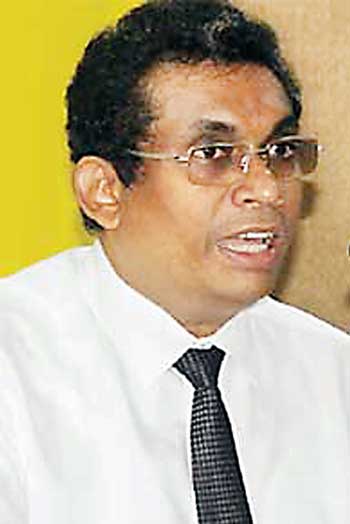 a unitary state have not been included in the list that was published. “The report was just intended to show the world that the people are for federalism, which is the view of the present Government as well. The entire process is a total fraud because it is merely a selection of what they want to hear”
a unitary state have not been included in the list that was published. “The report was just intended to show the world that the people are for federalism, which is the view of the present Government as well. The entire process is a total fraud because it is merely a selection of what they want to hear”
De Silva feels that this is not a genuine attempt but a portrayal of what the separatists want; a deliberate manipulation.
“What is happening is that a constitution has already been prepared and now this is just the collection of groundwork to back it up.”
Even in the six committees subsequently appointed there was no proper representation. De Silva explains that in the Centre-Periphery Committee for example, the report itself starts out by stating that the Chairman and members are in favour of a federal State and that a unitary system was an obstacle to centre periphery operations. “So if this is the view then at the start itself the view is prejudicial. An open mind is essential” Another example he gives is how the Joint Opposition wanted Udaya Gammanpila, however he was put into a comparatively unimportant committee instead.
“Firm believers of a unitary model have been kept aside. Instead those who have expressed views for federalism have been put in”
When asked about what one could conclude if one were to analyse the data in terms of what the public want De Silva says that this cannot be done by looking at the reports since the reports themselves are fraudulent.
“Therefore it has to be analysed as what the committees want. As such this would be doing away with the concurrent list. “Countries such as India, South Africa, and Australia, all countries that have devolved power have concurrent lists. This has been proposed to be removed so that the Centre cannot interfere in wrong decisions by the periphery” Another thing that Manohara feels that the committee wants is the abolition of the role of the Governor. “As per Art. 154 (B) (2) of the Constitution, the President can intervene through the Governor however if his post is abolished the result is that the Provincial Cabinet of Ministers and the Chief Minister can do whatever they want” “The Government tells the public that they are standing for a unitary Sri Lanka but the committees are placed to propose only federal features. All proposals indicate the want of a federal state.”
Another issue is police powers.
“As per the 9th Schedule, the Police is under the control of the Chief Minister. If Police powers are 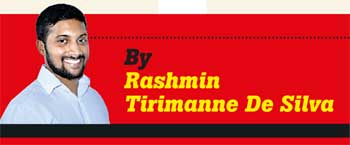 given to the provinces we are giving them the power to legislate on law and order. If all the land is given as well these will become separate States.”
given to the provinces we are giving them the power to legislate on law and order. If all the land is given as well these will become separate States.”
When asked about devolution, De Silva said that he was not against devolution per say as in any country decisions have to be taken at the local Government level. “However, it is important that if it is a unitary Constitution the Central Government has the final say, if not it is not unitary. Therefore don’t mislead the public by calling it unitary”
He admits that, nevertheless, there must be certain safeguards.
“If the Centre takes wrong decisions there should be a mechanism to get a decision from the judiciary” But that is not what “these people want. They want the Centre to not have any power at all” Art. 154 (G) (2) and (3) state that laws of provincial councils cannot be repealed without a 2/3rds majority. However Parliament laws can be, by a simple majority. “How can we still say Parliament is supreme?
In relation to the proposed Bill of Rights and the inclusion of more liberal ideas, De Silva says that what the Government is talking about in relation to these “liberal ideas” are those like homosexuality. “What two men or two women do in their own bedroom is their own business but I am against legalizing homosexual marriages since it destroys our culture. Other cultural values can’t be put in by force to the rich culture we have inherited.” He nevertheless feels that a Bill of Rights is okay and there is a lot of room to improve it. When asked about what he thinks should be the key areas of reform, “if the 13th Amendment is to stay in its present form then Article 154 (G) (2) and (3) must be repealed. The power of the President to intervene should be kept intact. The policy of allowing the Central Government to decide on policy should be kept. Police and land powers should not be given to the provinces. However the present Government is manipulating the process to give victory
to the separatists”

Add comment
Comments will be edited (grammar, spelling and slang) and authorized at the discretion of Daily Mirror online. The website also has the right not to publish selected comments.
Reply To:
Name - Reply Comment
US authorities are currently reviewing the manifest of every cargo aboard MV
On March 26, a couple arriving from Thailand was arrested with 88 live animal
According to villagers from Naula-Moragolla out of 105 families 80 can afford
Is the situation in Sri Lanka so grim that locals harbour hope that they coul